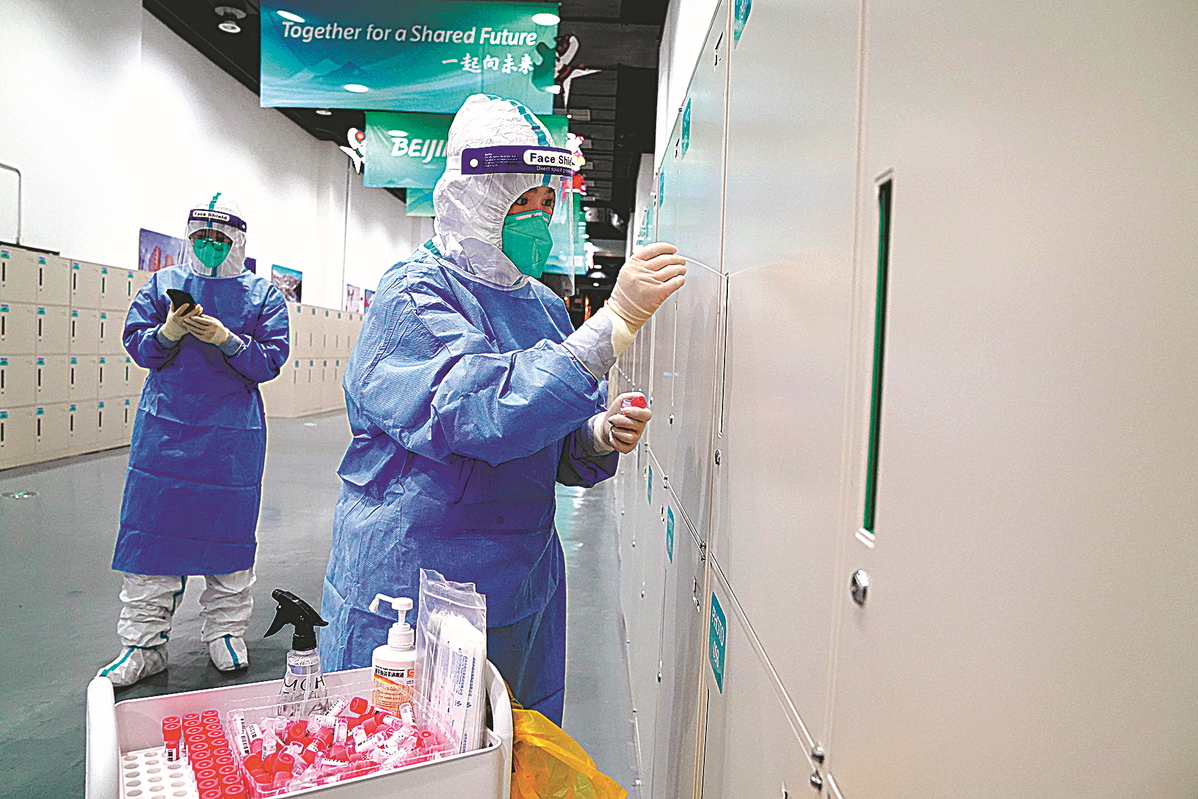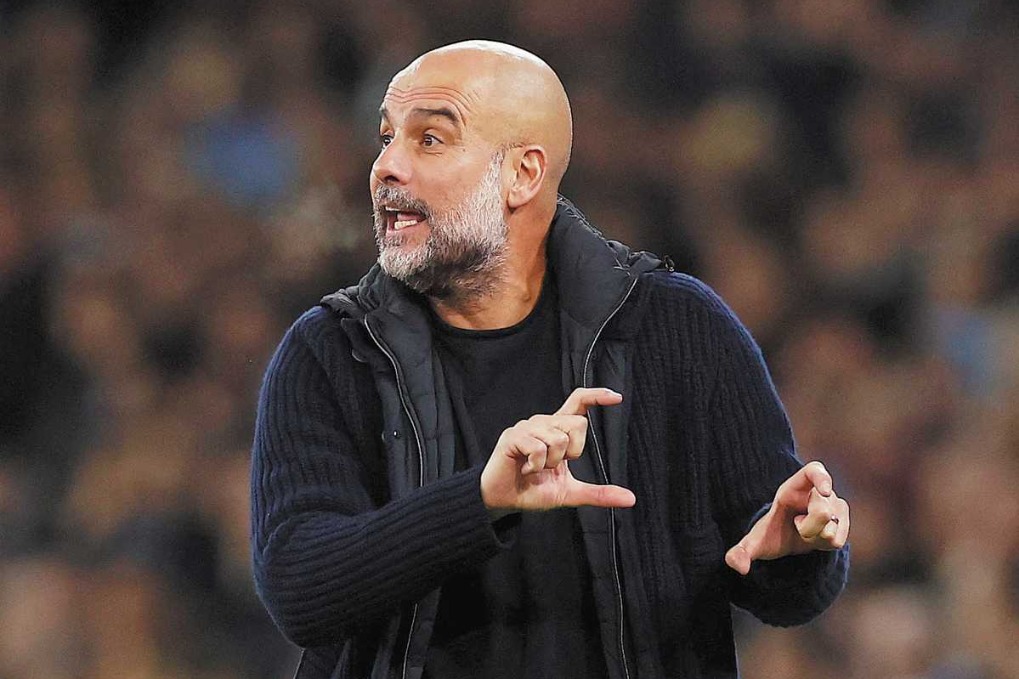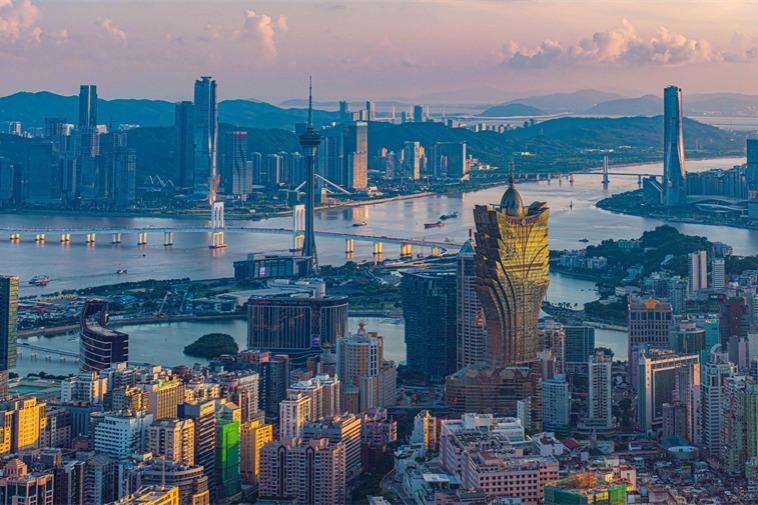Reporter's log: I pass the test and adapt to life in the closed loop with thousands of others


While working in the closed-loop management system for the Beijing 2022 Winter Olympics, I dare not forget to take a nucleic acid test each day.
The system required everyone operating in the loop to take a daily test for COVID-19. We were only allowed to leave the hotel when results returned negative.
I learned my lesson from the start, as I missed the test on Feb 4, the official opening day of the Games, due to a tight work schedule. I received several phone calls from hotel staff members that afternoon, when they discovered from the system that I had yet to take a test.
They reminded me about the test and suggested I take it as soon as possible. I had to get up at 6 am the next day to take the test and wait until a negative result was returned in the afternoon before I could go out to cover the Games.
Due to the strict implementation of anti-pandemic measures, the Beijing organizers controlled the infection risks from COVID-19 within the loop.
I initially felt a little anxious in the loop, as it was "home" to more than 10,000 athletes, along with journalists and officials from around the world. The omicron variant was also emerging globally. However, in view of the strict control measures, I felt at ease and knew that I didn't have to worry, just follow the protocols strictly.
The pandemic prevention measures adopted for Beijing 2022 mirrored China's "dynamic zero COVID-19 policy", which requires early detection, swift response, targeted containment and effective treatment.
Gradually, I realized I was not the only one to feel relief in the closed loop. An increasing number of athletes and people working in the loop said they felt more assured about their safety.
The day before the Games opened, Brian McCloskey, chief of the Beijing 2022 Medical Expert Panel, said that with the majority of the athletes having arrived and positive cases being well managed, "the risk within the closed loop is very low".
"There are very few places in the world where the risk of COVID-19 is as low as it is here," McCloskey added.
Addressing the media on Feb 18, two days before the Games closed, International Olympic Committee President Thomas Bach also described the loop as "one of the safest places on the planet".
To my further surprise, the athletes-although restricted from going outside, having to wear masks, maintain social distancing and take a nucleic acid test every day-also hailed the measures.
Geoff Lipshut, Team Australia chef de mission, said: "The athletes really felt COVID-safe here, and that helped their state of mind, particularly those that had been traveling around the world for 18 months trying to qualify for the Games. I've received many positive comments from our athletes."
As for myself, I am now undergoing 14 days' quarantine outside the loop, which will further reduce the risk of spreading the virus to the city.
With all the measures adopted, I believe that not only the Games participants, but also people across Beijing, will be satisfied with a splendid Winter Olympics and feel safe from the virus spreading.
Most Popular
- City players still back beleaguered Guardiola, says Foden
- Embiid fracture 'not as severe' as before
- Inzaghi hails players' resilience in Lazio rout
- Spurred on: Popovich keen to return to work
- Amorim: Rashford and Garnacho are 'fighting for their places'
- Pep takes blame for City's woes
































